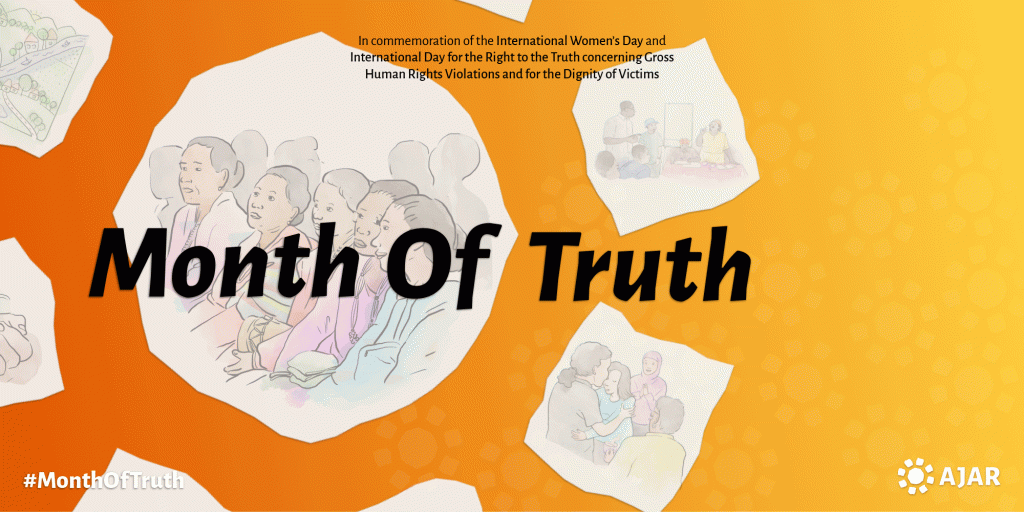To commemorate #InternationalWomensDay #IWD2022 this 8 March and kickstart our month-long #MonthOfTruth campaign, we at @asia_ajar and our partners would like to reflect back on the meaning of ‘participation’ for victims, survivors. Throughout the world, women now are being disproportionately affected by the climate crisis, injustice, gender-based violence #GBV #WAWG, and more vulnerable in the event of gross human rights violations. At the same time, women and girls worldwide are also leaders who create safe spaces for their own and the community.
Seeking the truth about the past, holding the perpetrators of violence to account, reconciling divided groups and (re)establishing peace are deemed vital for victims, affected communities, and for the future of both state and society in transitional justice mechanisms. Without a doubt, victim participation has changed the way that policymakers and practitioners conceive of transitional justice. In his first report, the UN Special Rapporteur on the promotion of truth, justice, reparation and guarantees of non-recurrence (TJRNR) therefore refers to ‘meaningful participation’ of victims as a sine qua non for providing recognition, fostering trust and strengthening the rule of law as components of a ‘victim-centred approach’ to TJ (UN Doc. A/HRC/21/46).
Nevertheless whilst the benefits of participation appear self-evident, there is much room for reflection on the dynamics of victim participation on the ground. This year, we reached out to the victims, survivors, partners, and civil societies from different countries to better understand how ‘participation’ can continue to develop meaningfully and be defined by the victims themselves.
